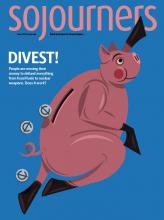FORMER U.S. POET Laureate Kay Ryan, in her poem “Waste,” wrote, “Nothing is exempt from resurrection.” That insistence on redeeming the past—on refusing to allow what’s come before to determine our fate—shines through several articles in this issue. Richard Twiss, a Lakota activist and pastor, tells stories of the former demonization of Native drumming and other Indigenous music—and how Native Christians today are finding new meaning, and new life, in old traditions.
Economic Justice
In an unexpected announcement Friday, Baltimore lead prosecutor Marilyn J. Mosby said there is “probable cause” to file criminal charges against police officers in the death of Freddie Gray, who suffered a spinal cord injury while in police custody on April 12.


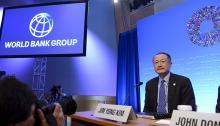
The World Bank is teaming up with global religious leaders in a 15-year effort to end extreme poverty by 2030.
About 35 religious groups worldwide, including Bread for the World, Islamic Relief International, the Religious Action Center of Reform Judaism, and Sojourners, endorsed the call to action. Supporters include Christians, Jews, Muslims, Baha’is, and others.
“Our approach to this staggering need must be holistic, rooted in the spiritual visions of our respective faiths, and built on a shared recognition of the intrinsic dignity and value of every life on Earth,” the call said.
Observers say it’s the first time the World Bank has tapped the reach and resources of religious groups in combating extreme poverty — partly out of a realization that the work is too big for any one institution, and also in hopes of limiting unnecessary duplication between the World Bank’s ideas and those of various religious groups.
“There’s a real convergence between these dual goals of the bank and many of the commitments and convictions of religious institutions and organizations,” said the Rev. Adam Taylor, a Sojourners and World Vision alum who now oversees faith-based initiatives at the World Bank.
During an April 9 teleconference, Wold Bank President Jim Yong Kim said the number of people living in extreme poverty — living on less than $1.25 per day — has fallen from 2 billion in 1990 to 1 billion today. And he strongly believes that with enough support, that figure could be eliminated in another 15 years.
But Kim said that in order to reach the goal, there will be two important aspects to the fight to end poverty: gathering evidence on what works and what doesn’t work in combating poverty, and enlisting the aid of religious communities.
“I believe that some of the most important leaders in the movement to end extreme poverty will be people of faith, people who are motivated fundamentally to help the most vulnerable among us,” Kim said.







WHAT IS OUR responsibility to expectant mothers, workers suffering from prolonged illness, or parents with children dealing with a significant sickness? Many Christians will assume the “our” in question refers to individual believers or the church as a community of believers. But what if the “our” refers to society as a whole? How is the question answered then?
This is more than an abstract question. Across the U.S.—at local, state, and federal levels—governments are debating policies that would expand paid sick leave. The issue itself isn’t complicated: Some workers have paid time off when they or a family member falls ill, while tens of millions of others—disproportionately low-wage workers—do not. The latter often face the difficult choice of struggling through shifts while sick or staying home and putting their livelihoods at risk.
The benefits of paid sick leave policies are well documented, with studies detailing the economic benefits paid sick leave provides by lowering employee turnover and training costs, reducing public-assistance spending, and improving productivity. “Working sick costs the national economy $160 billion annually in lost productivity,” according to the Journal of Occupational and Environmental Medicine. Even greater gains can be realized when expanded family leave policies are included.


While President Obama's "Student Aid Bill of Rights" is a prudent and necessary step towards aiding college students, his announcement comes late for the seven million borrowers already indentured to their education debt. In "Forgive Us Our Debts" (Sojourners, April 2015), Virginia Gilbert investigates the cause-and-effect battle of education debt and the way it is hindering a generation of college students. How big is the student debt burden? See below for the poor report card reveal.
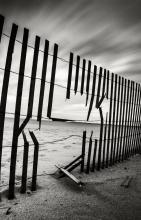
Lent is our season of honesty. It is a time when we may break out of our illusions to face the reality of our life in preparation for Easter, a radical new beginning.
When, through this illusion-breaking homework, we connect with reality, we see that in our society the fabric of human community is almost totally broken. One glaring evidence of such brokenness is the current unrelieved tension between police and citizens in Ferguson, Missouri.
That tension is rooted in very old racism. It also reflects the deep and growing gap between “the ownership class” that employs the police and those who have no serious access to ownership who become victims of legalized violence.
This is one frontal manifestation of “the covenant that they broke,” as referred to in the Jeremiah text for this week: a refusal of neighborly solidarity that leads, with seeming certitude, to disastrous social consequences.
Of course the issue is not limited to Ferguson but is massively systemic in U.S. society. The brokenness consists not so much in the actual street violence perpetrated in that unequal contest. The brokenness is that such brutalizing force is accepted as conventional, necessary, and routine. It is a policy and a practice of violence acted out as “ordinary” that indicates a complete failure of neighborly imagination.
Lent is a time for honesty that may disrupt the illusion of well-being that is fostered by the advocates of indulgent privilege and strident exceptionalism that disregards the facts on the ground. Against such ideological self-sufficiency, the prophetic tradition speaks of the brokenness of the covenant that makes healthy life possible.
As long as there is denial and illusion, nothing genuinely new can happen. But when reality is faced — in this case the reality of a failed covenant between legal power and vulnerable citizens — new possibility becomes imaginable.
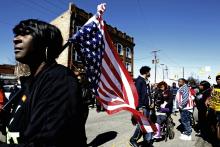
With the 50th anniversary of Bloody Sunday this weekend, America was reminded how this small city helped bring sweeping change to the nation.
But while Selma might have transformed America, in many ways time has stood still in this community of 20,000 that was at the center of the push that culminated with the Voting Rights Act of 1965.
Dallas County, of which Selma is the county seat, was the poorest county in Alabama last year. Selma has an unemployment rate of 10.2 percent; the national rate is 5.5 percent.
More than 40 percent of families and 67 percent of children in the county live below the poverty line. The violent crime rate is five times the state average.
The Birmingham News called the region, known as the Black Belt because of its rich soil, “Alabama’s Third World.”
SARA WAS DESPERATE. She was fleeing an abusive husband, living with her mother in a mold-infested house, and she needed to rent an apartment. A recent college graduate, Sara had a job at a hospital that paid well and provided benefits. Apartment rent was within her means. But the background check came back to the landlord: “Do not rent.”
Sara (not her real name) was $22,000 in arrears on her student loans. The more she tried to pay the debt, the higher the interest rate climbed. Only after she filed for bankruptcy did she learn that none of her student loans were eligible for even the basic bankruptcy protection afforded other debts. At any time, the lender could garnish her wages—even to the point of making it difficult to pay basic living expenses, such as rent and utilities.
Sara is one of the new 21st century debtors, in financial bondage because they borrowed money for education. In 2014, the education debt in the United States totaled $1.2 trillion. More than 7 million borrowers are in default.
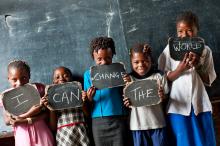
It’s hard to be optimistic about changing the world when our news cycle is dominated by terrorism, violence, and disease. When world events shock us, sometimes our best hopes cave in to our worst fears. Even the most radical activist may be tempted to give up.
But there is a different narrative that summons those of us who dare to care. It begins when we confront the things that have kept millions from breaking free from poverty and injustice. It ends when we find the courage to change how we change the world.
In the Democratic Republic of Congo, which consistently ranks among the poorest countries in the world and the most dangerous for women, a group of peacemakers are changing the narrative. Last year I met a Congolese woman who told me how her husband was killed in crossfire between warring militias, how she was violently assaulted by the soldiers who were supposed to protect her, and how she fled her village with her eight children under the cover of night. In the wake of her suffering, she joined a group of women to save small amounts of their own money each week. From her savings, she launched a soap-making business. Over time, she employed others and taught her sisters how to do the same. She helps others to forgive their perpetrators and, together, they are determined to stop the violence against women in a land known as the rape capital of the world.
Today thousands of peacemakers like her are changing Congo, and their numbers continue to swell. They are “waging peace” to save Congo one village at a time.
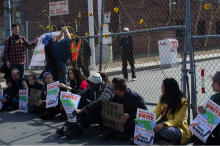
“An individual who breaks a law that conscience tells him is unjust, and who willingly accepts the penalty of imprisonment in order to arouse the conscience of the community over its injustice, is in reality expressing the highest respect for the law” —Martin Luther King, Jr.
Last year on a crisp afternoon in March, I was one of nine people arrested by the NYPD and taken away to the local precinct for processing. My crime? Attempting to plant detoxifying sunflowers on public brownfield land on the South Bronx waterfront in New York City.
Earlier in the day, more than 100 residents, faith leaders, organizations, friends, and allies came together to protest the proposed relocation of the online grocer FreshDirect to a residential neighborhood in the South Bronx. After a jubilant and joyous interfaith reflection and prayer vigil outside the entrance to the waterfront location, security guards refused to let us cross the gate, so we sat in front of it in protest — a peaceful and non violent act of civil disobedience.
Our coalition, South Bronx Unite, works to improve and protect the social, environmental, and economic future of the South Bronx in New York City, located in the poorest congressional district in the country. For three years we have been fighting to stop FreshDirect from receiving more than $100 million in subsidies and incentives to build a diesel trucking distribution center on public land along the Bronx Kill Waterfront.
